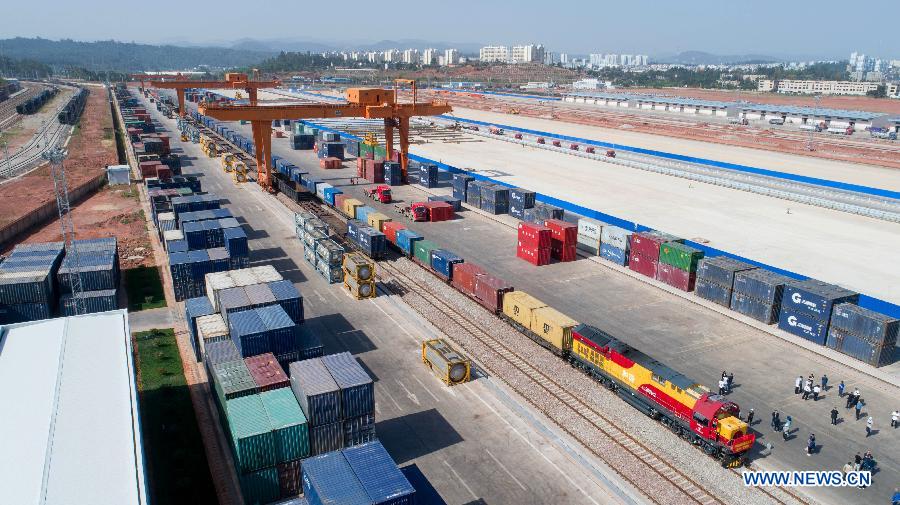
(Xinhua photo)
BEIJING, May 31 (Xinhua) -- China's latest opening-up measures of easier trade policies and increased import orders will benefit its high-quality development and boost world economic growth.
China announced Wednesday a series of opening-up measures to create a fairer, more transparent and easier investment environment for foreign-funded companies.
The measures include relaxing market access, enhancing investment and better protecting the interests of foreign investors, according to an executive meeting of the State Council chaired by Premier Li Keqiang.
At the meeting it was decided that investment facilitation would be enhanced based on international standards. The negative list on market access for foreign investors will be revised and released before July 1.
"These measures are China's concrete moves to fulfill its commitment of wider opening-up and also meet the demand of its own development goals," said Bai Ming with the research department of the Ministry of Commerce.
"Attracting foreign investment is very much in line with China's supply-side structural reform, which calls for higher-quality resources," said Yang Changyong, a senior researcher from the Chinese Academy of Macroeconomic Research.
Since China began reform and opening-up four decades ago, foreign investment has created an important boost for economic growth.
Foreign direct investment in the Chinese mainland rose 7.9 percent to reach 878 billion yuan (138.6 billion U.S. dollars) in 2017, an all-time high.
"As China transitions from high-speed growth to high-quality development, the quality of foreign investment should also be improved," Yang said. "To attract more high-quality investment, China should create a more encouraging environment, with mechanisms such as the negative list approach pushed forward."
Besides wider market access, China pledged to expand imports, as it aligns with the country's goal of increasing consumption.
During Wednesday's meeting, the premier announced further cuts of import tariffs for consumer goods starting July 1, including clothing, shoes, home appliances and cosmetics, to meet demand and boost quality and industrial upgrading.
The announcement came on the heels of China's plan last week to cut import tariffs on vehicles and auto parts from July 1 to upgrade the auto industry.
"As people's incomes increase, the demand for healthy food, healthcare products and creative cultural goods is showing rapid growth, and imports in these fields will meet such demand," said Li Dawei, a researcher with the Chinese Academy of Macroeconomic Research.
He said tariff cuts would help China achieve balanced trade, upgrade the domestic industrial chain and boost technology innovation.
"Expanding imports is an important way to achieve mutual benefit," said Li, noting that China's huge market potential would enable other countries to achieve common development and prosperity.
"These measures signal that China wishes to not only improve itself, but to inclusively share the benefits derived from China's development model," Li said.

















